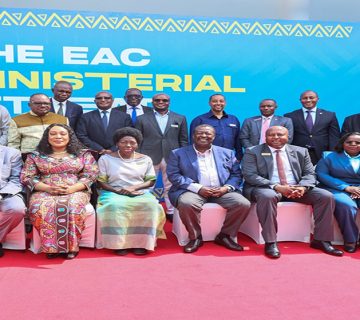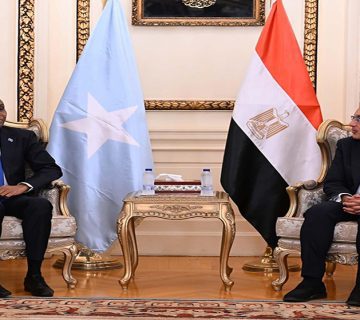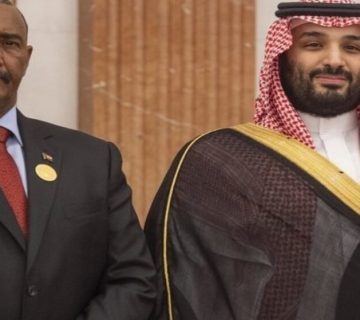As of July 25, 2022, Independent Electoral Boundaries Commission (IEBC) had finalized the registration of presidential candidates with four out of over fifty presidential aspirants making it to the ballot paper ahead of the August 2022 general election. Three of the four presidential candidates feature women as their running mates: Martha Karua (Azimio la Umoja), Ruth Mutua (Agano Party), and Justine Wambui (Roots Party). The nomination of female running mates is a celebrated milestone for Kenya as the political space is dominated by men. Although women have previously held senior political positions in Kenya, meaningful leadership and participation have been impeded by discriminatory attitudes and norms, conscious or unconscious biases, and mobility limitations due to the threat of political violence. The focus on women during the course of this electoral campaign may mark the start of a new era of politics in Kenya with regard to the participation of women in political leadership.
Kenya’s History and the Role of Women
Historically, few women have made an impact in Kenyan politics. This could be due to claims such as, it is within women’s nature to be passive and that the socialization of women has made them embrace male dominance. Interestingly, there is a social construction that women are underqualified for public office. It should be noted that in traditional pre-colonial societies, women were involved in nation-building where they exercised political power and authority. For instance, among the Bunyoro, Ankole, and Akan; women actively engaged in political leadership and authority while others supported the most powerful men behind the scenes.
This extends to the colonial era in Kenya where women, alongside men, also fought for independence. An example is Mekatilili wa Mwenza who led the Giriama resistance in the Coast region in Kenya. In the course of the Mau Mau Rebellion, women also played a major role. They made up about five per cent of guerrilla fighters and undertook tasks such as carrying food into the forest, conveying messages and transporting firearms from the villages to detention camps.
Under the colonial administration, women held elective seats, all of which were specially elected. However, after independence, women realized that their contributions to the struggle for independence would not be returned in kind. The government did not include women in governance, and when the opposition proposed a motion to preserve seats specifically for women in July 1963, it was defeated in the National Assembly.
Among the major movements that spearheaded women’s interest in the public sphere is Maendeleo ya Wanawake. This movement was originally founded by the spouses of colonial administrators and had branches in rural areas. They were later criticized for inadequate representation. Kenya also hosted the 1985 third Women’s Conference from July 15 to July 26, 1985, which was the first conference of its kind in an African state.
Advocating for Women
Before the 2010 Constitution, women parliamentarians founded the Kenya Women Parliamentary Association (KEWOPA). KEWOPA is an association of all women parliamentarians drawn from all political parties; both elected and nominated in the Senate and National Assembly. It was founded in 2001 in response to the need to increase the number of women parliamentarians and enhance their contribution on not just parliamentary issues but to also increase the attention to issues affecting women. The association believes that women, have equal rights to participate in all aspects of the governance of Kenya, just like men, and has always committed to ensuring that the country’s policy and legislative frameworks redress gender disparities and other injustices that undermine sustainable development. As a result, it continuously advocated for the two-thirds gender rule.
Kenya’s 2010 Constitution, which has been termed the most progressive on the continent, includes various provisions dedicated to women empowerment. For example, there is the National Gender and Equality Commission (NGEC) which was formed under the National Gender and Equality Commission Act 2011 pursuant to Article 59 (4) of the Constitution of Kenya. NGEC mainly coordinates, monitors, and ensures compliance to and implementation of women and gender-related provisions in the constitution. The constitution under Article 97 has also given women an opportunity to primarily represent women and girls in their counties. The National Assembly consists of 47 women each elected by registered voters of the county and this has been of help especially in ensuring that women are well represented at county levels.
After the implementation of the 2010 Constitution, there have been some noticeable changes in terms of women’s participation in politics. In 2017, for example, history was made when a total of six women won the powerful gubernatorial and senatorial seats. There was also an increase in women’s parliamentary representation by six: from 16 in 2013 to 22 in the 2017 elections.
Ahead of the 2022 general elections, the number of women contesting for political seats, especially the gubernatorial seat has risen from the previous elections. A total of 10 women are contesting the seat as compared to the previous elections. Despite the fact that one can confidently say that the new constitution has played a huge role in outlawing gender discrimination, Kenya, according to Society for International Development (SID), is the only country in the region yet to establish an affirmative action programme for gender representation in Parliament. According to SID, the political representation of Kenyan women now stands at 20.7 per cent, Rwanda’s 58 per cent, Tanzania’s 36 per cent, Uganda and Burundi both at 35 per cent.
Constraining factors notwithstanding, there is hope for women in Kenyan politics. In order to achieve better results, some of the challenges especially the norms related to gender and leadership; political and economic spheres; and the belief that women are not meant to lead; need to be addressed within some communities. This can be done through the expression of ideals around gender equity in the education system, to help build a new set of cultural norms from childhood.
Janice is a Project Assistant at HORN Institute and Raudhat is a Research Assistant at HORN Institute
Photo: A section of women leaders at a past international conference. Photo Credit: George Town Institute for Women Peace and Security
The contents of this article are copyright of © The HORN Institute 2022. All rights reserved. Any redistribution or reproduction of part or all of the contents in any form and for whatever reason is prohibited. You may use the content of this article for personal reasons, but acknowledge the author and cite the website as sources of the material.



